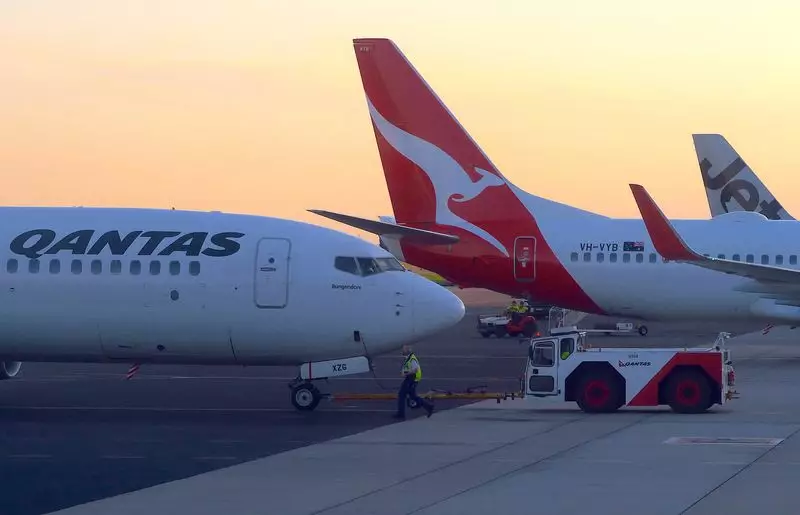In a significant legal ruling, Australia’s Qantas Airways has been directed by a Federal Court to compensate three of its former baggage handlers with a total of A$170,000 ($114,000), after determining that their dismissals in 2020 were unlawful. Federal Court Judge Michael Lee emphasized the need to provide damages reflective of the emotional and psychological toll experienced by the workers following their termination, which aimed to deter a potential industrial action during a challenging economic time associated with the COVID-19 pandemic. This decision has set a precedent for a larger case concerning approximately 1,700 other workers whose jobs were also outsourced under similar circumstances, indicating significant repercussions for the airline.
Qantas had previously defended its actions by asserting that the mass sackings were necessary for cost-cutting in response to the pandemic. The airline contended that these measures were essential to navigate the financial woes exacerbated by ongoing border closures and international travel restrictions. However, the court found Qantas’ decision to outsource ground handling operations not only unlawful but potentially avoidable. Judge Lee noted that had Qantas opted for a lawful route, the company could have mitigated substantial operational costs while adhering to legal protocols. This critical analysis of the airline’s conduct suggests a discrepancy between corporate strategies and employee welfare, thereby calling into question Qantas’ management practices during a turbulent period.
The ruling does not only address the immediate concerns for the three dismissed workers, but it also establishes a framework for subsequent negotiations regarding overall compensation for all affected employees. As Qantas prepares for further discussions with the Transport Workers Union (TWU), the company is assumed to utilize the amounts decided for the three workers as benchmarks in forming a comprehensive compensation package. This approach reiterates the need for Qantas to not only rectify past wrongs but also to rebuild trust with its workforce amid a historic scandal that showcases the friction between corporate governance and worker rights.
With the ongoing legal challenges, Qantas is actively trying to rehabilitate its reputation after a series of controversial decisions that sparked public and regulatory scrutiny. With a pending lawsuit settlement amounting to A$120 million regarding the sale of tickets for cancelled flights, the pressure mounts for Qantas to prove its commitment to reform. The comments from TWU’s national secretary, Michael Kaine, reflect the union’s expectations for Qantas to implement genuine changes rather than merely surface-level adjustments. CEO Vanessa Hudson’s admission of responsibility underscores the airline’s acknowledgment of its past mishaps, but the burden remains on Qantas to demonstrate sustained improvements in both conduct and employee relations.
As both parties prepare to reconvene in court on November 15 to discuss the broader implications of the ruling, much will hinge on Qantas’ ability to navigate this complex landscape. The airline confronts the task of addressing past grievances while also ensuring operational resilience in a post-pandemic world. The outcomes of these ongoing negotiations will not only define Qantas’ financial liabilities but will also shape the relationship dynamics between the airline and its employees as it strives to emerge from one of the toughest phases in its history. The judgments against Qantas serve as a clear signal to corporations about the importance of lawful employment practices and the potential consequences of neglecting employee rights in favor of immediate financial imperatives.


Leave a Reply